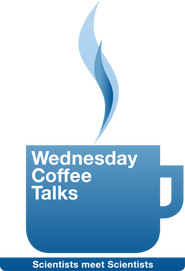Scientists Meet Scientists – TUM-IAS Wednesday Coffee Talk | Seminar Series of European Universities on Sustainability by Prof. Marja-Liisa Tenhunen: “Digitization Innovation as Part of Sustainability in University Education”
Events, WCT |

On 13 December, Prof. Marja-Liisa Tenhunen (Dimitrie Cantemir Christian University, Bucharest, Romania) will present the third talk in our recently launched Seminar Series of European Universities on Sustainability. The topic of the talk is "Digitization Innovation as Part of Sustainability in University Education."
Abstract:
Online-teaching opened up as a smart solution for future education. In the field of education, a digital leap had been made in a short notice which has encouraged universities in the development of creative and innovative solutions. Concerns about educational inequality had risen in the process especially in the countries with short prior experience in online education. Same countries had also shorter history of innovation-orientation. Despites the limitations in technological conditions, all possible efforts should have been made when pursuing equality in online-education. The global emergency of the Covid-19 pandemic confronted all people with unpredictable, disruptive situations which had changed the daily lives, economies, political decisions and universities. In any case, remote online-teaching and -learning could not fully replace a face-to-face -teaching and learning environment where teachers and students discuss with each other.
Generally, online-teaching has been used to supplement the classroom teaching, which is called “blended learning”. “When there is a risk, there should be an opportunity”, as the saying goes. The late Austrian-American economist Joseph Schumpeter introduced the “creative destruction theory”. (Schumpeter 1991, Kopp 2019) The Covid-19 pandemic was destructive, but it also, in a sense, created some creative destruction. It opened new opportunities and facilities for innovations based on the creative destruction theory. In the best scenario, teachers and students had got some benefits from online-teaching, which equipped them for the future learning and communication.
Teachers’ creativity and innovation skill with online-teaching can be a vital factor for stimulating students’ autonomous learning, turning the epidemic “crisis” into an “opportunity” whilst reforming teaching and learning innovative concepts. The university management should have provided support in this process and change its operating logic. During this period university leadership system changed at short notice in to the direction of Dynamic operation logic. (Aberg & Stahle, 2012). Throughout history, education has rarely been reformed or benefited from technological advances. Nowadays, with digital teaching allowing real-time interaction, many innovative teaching- and learning-methods can be attempted and implemented.
The system can also guide students to review more challenging content. With the benefit of this experience, teachers can use similar functions in their traditional classroom teaching in the future to better understand students’ personal progress and needs. The “flipped classroom” teaching method that has emerged in recent years is particularly applicable in a real-time video teaching environment. Students can watch the relevant teaching materials and videos in advance before the live online class so that the teacher can make better use of live class hours and focus on interactive discussion. This reduces the portion of unidirectional lecturing. (Hakkarainen 2004; Karna 2011; Kilpinen 2004).
Date: December 13, 2023
Time: 13:00 CEST (until approx. 14:00)
Location: online
Registration: The TUM-IAS Wednesday Coffee Talks including the new Seminar Series of European Universities on Sustainability are held online via Zoom making it accessible to a global audience. To register and to receive the Zoom link, please send an email to events@ias.tum.de.
Seminar Series of European Universities on Sustainability
As part of the ongoing commitment of the TUM-IAS to foster scientific exchange and professional networks, the Seminar Series of European Universities on Sustainability aims to bring together scientists from research institutions in Eastern, Southeastern, and Central Europe to discuss topics related to the 17 Sustainable Development Goals of the United Nations. This seminar series is a first step to bridge the geographical and academic gaps in order to create a scientific network, and encourage joint research initiatives and build lasting collaborations for a more sustainable future
THE TUM-IAS WEDNESDAY COFFEE TALKS
Every Wednesday after lunch, it's all about a new topic - current research highlights at TUM, insights into the work of our Fellows from all over the world, sometimes even topics not usually found at TUM, such as history or theology.
The talks held online start every Wednesday during TUM lecture time at 1:00 p.m. Everyone is welcome - TUM researchers of all levels, students, visiting scholars, and anyone interested!
Each final Wednesday of the month, a topic related to the United Nations' 17 Sustainable Development Goals will be featured as a part of the Seminar Series of European Universities on Sustainability, a new initiative of the TUM-IAS in partnership with universities across Central, Eastern, and Southeastern Europe.
Would you like to receive regular updates on the TUM-IAS Wednesday Coffee Talk and the online link? Just send a short note to events@ias.tum.de.
An overview of upcoming and past TUM-IAS Wednesday Coffee Talks can be found at the TUM-IAS Wednesday Coffee Talk Overview.